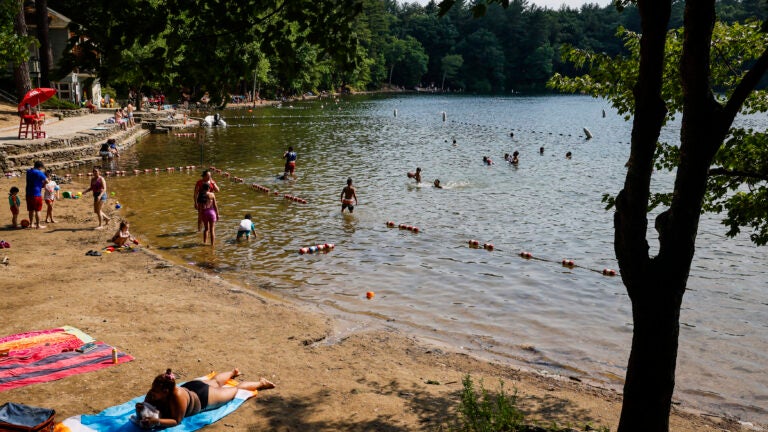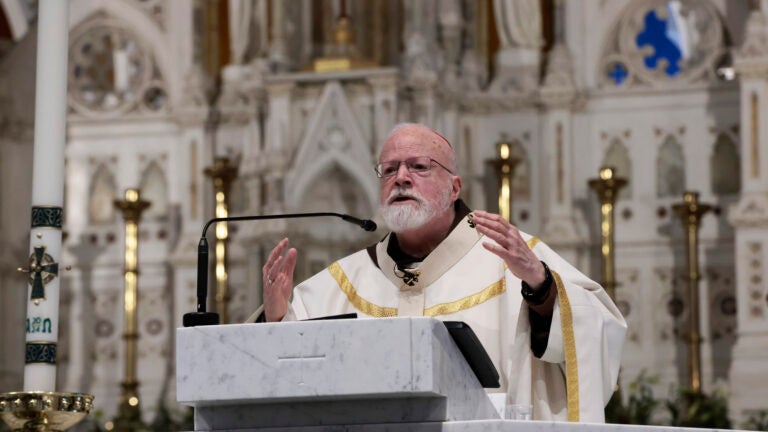Initiative helps ease housing crunch in Provincetown and Nantucket
Dozens find year-round leases as homeowners sign up for incentives in lieu of seasonal rentals.

It’s the same story in some of the biggest leisure destinations in the United States: Housing for year-round residents is as scarce as an affordable cost of living.
But in the past year, two municipalities on the Cape and Islands rolled out an initiative that first found success on the West Coast: They incentivized homeowners to ditch vacation rental platforms and instead rent their properties to locals year-round.
Both Provincetown and Nantucket launched Lease to Locals programs to boost the availability of existing housing to year-round residents. The first Lease to Locals program, founded by housing organization Placemate, rolled out in 2020 in Truckee, Calif., near Lake Tahoe. It has since been expanded to other vacation markets across the country like Woodstock, Vt., and Eagle County, Colo. On Nantucket, only 35 percent of the island’s nearly 12,000 units of housing are available for year-round occupancy, according to Kristie Ferrantella, Nantucket’s municipal housing director.
Leaders note that the Placemate program, while often utilizing public funds, is not to be confused with low-income affordable housing programs tied to the US Department of Housing and Urban Development. Instead, this is a project geared toward people still making annual salaries at, or even well above, the national average but who still struggle to find, let alone afford, a place to live.
“These are the people that are making $60-, $80-, or even $100,000 a year but still can’t afford to buy because the houses are so expensive,” said Placemate CEO and cofounder Colin Frolich. “On Cape Cod and the Islands, everyone during the pandemic either moved into their second home or kicked out their long-term tenants and sold because the market was going crazy. There was already a problem of affordability and availability, but all of a sudden it became even harder.”
The average home value in Provincetown is $988,594 — up 6.9 percent from a year ago, according to Zillow. On Nantucket, the figure climbs even higher to $2,755,586, a 6.9 percent jump.
It can be difficult for a homeowner to say goodbye to hefty short-term rental income during the summer months, particularly in desirable destinations like Provincetown and Nantucket that don’t have room to boost the housing supply significantly. Weeklong rental rates in either market can soar to the tens of thousands of dollars.
More on the Cape & Islands
But Provincetown leaders aim to level the playing field a bit by offering as much as $20,000 to homeowners who lease to locals, while the Nantucket initiative provided up to $27,000. As of press time, the funding for the Nantucket program has all been allocated, according to the Placemate.com website.
“Nantucket is probably one of the most expensive places in the country at this point, and the rate at which we’re losing community members and essential workers is why we wanted to create an ongoing, sustainable program for Lease to Locals going forward, at least until we have some of these building projects that are in the pipeline,” said Julia Lindner, who served as executive director of the nonprofit community group ACK Now, which partnered with Placemate on the Nantucket program. “Similar to P-town, we’re sitting on these projects that are taking five-plus years to come to fruition, and in the meantime, we’re losing a ton of housing.”
The incentives appear to be moving the needle on housing placement in these two New England enclaves, both of which have notoriously difficult times moving ground-up housing projects geared toward local workforces. In Provincetown, where the program launched April 1, 22 year-round residents have found housing across 12 properties. Nantucket’s Lease to Locals program has housed 54 people across 22 units of housing so far.
Unlike many of the other Lease to Locals markets that typically counted on public funds to test out the program’s viability, Nantucket relied on private donors to fuel the rollout. The private coffers amounted to roughly $400,000, Lindner said. Further, the Nantucket version of the initiative also looks beyond the first-year incentive to retain long-term leases, so homeowners can still get 50 percent of the renter incentive if they stick with their Lease to Locals tenant.
A survey conducted on the island indicated that half of the participating Lease to Locals homeowners would need a subsidy to continue renting year-round to close the income gap between short-term and year-round rentals, Ferrantella said. Most of the participating homeowners indicated a willingness to continue with the program with a 50 percent second-year subsidy, so the Nantucket Affordable Housing Trust Fund greenlit the offering to drive retention.
While initial funding was depleted, that was only a first-year pilot. The program will relaunch with a mix of public and private funding to sustain the program going forward.
“Lease to Locals is designed as a short-term initiative to incentivize homeowners to convert their properties, with the expectation that after receiving subsidies for a few years, they will continue to offer year-round rentals independently,” Ferrantella said.
Dan Riviello, Provincetown’s assistant town manager, told the Globe that this is only the first year of the pilot program on the Outer Cape, to “see how it works here, learn lessons, and prepare recommendations to the Select Board for how it may be continued and what that might look like.”
“We only officially launched in April, so are only in our fourth month of the program, but we’re certainly optimistic about the results thus far,” Riviello added.
Those talks on how the Provincetown iteration of the program can be sustained or expanded could begin this fall.
“As far as what is to happen in the future, I find it comforting that I can stay where I am at least until the year is up. I’m not sure what comes next, but I really appreciate how much this program has helped me and my friends out of our situation,” said Selena Schreyer, a Provincetown resident who found year-round housing this year thanks to Lease to Locals. “I think what would help folks feel more confident about the program would concern how much the renters benefit from trusting that they have a certain amount of time. Nothing is more destabilizing than having to move every six months and not have any idea where you’ll find a place.”
But Lease to Locals isn’t always going to be the best fit for homeowners. Younger or less-established homeowners who rely on higher short-term rental income to pay off mortgages may find that the incentives aren’t enough.
“What we find, at least in the markets where we’ve been more established, is that [participating homeowners] tend to be people that have been owning for a while and that have more connections to the community,” Frolich said.
Don’t rule Lease to Locals out before you do the math, Lindner said. The stability and steady, annual revenue stream may win out over booking, scheduling, and navigating a summer of weekly renter turnovers.
“People should take the time to run through the numbers because they will find that they not only get the financial stability of having the monthly rent and the feel-good aspect of helping the community in a really dire situation, but also there isn’t the headache that goes with the uncertainty of the other scenario, which is the short term-rental market,” she added.
Send comments to [email protected]. Subscribe to the Globe’s free real estate newsletter — our weekly digest on buying, selling, and design — at Boston.com/address-newsletter. Follow us on X @globehomes.






Conversation
This discussion has ended. Please join elsewhere on Boston.com